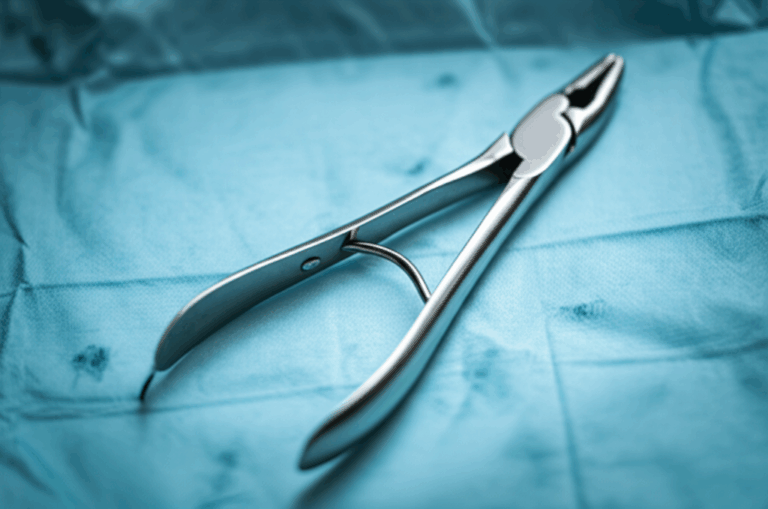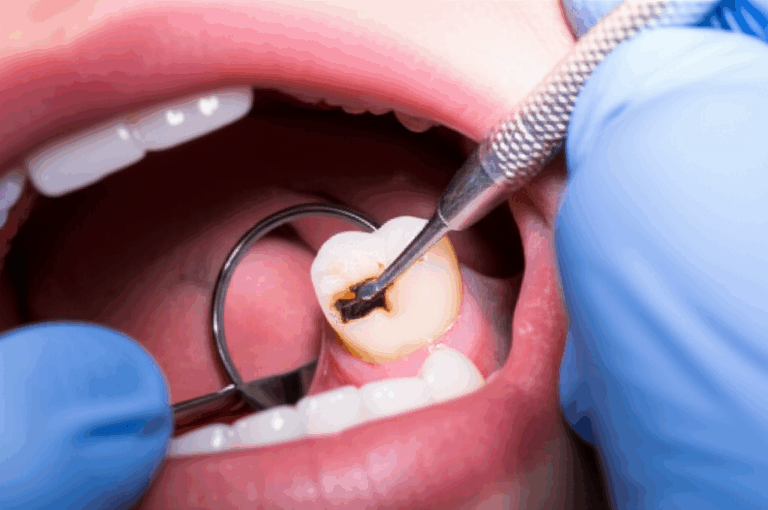
Is Your Dentist Responsible for a Failed Crown? Understanding Your Rights & Options
That sinking feeling when your dental crown falls off, gets loose, or just doesn’t feel right is more common than you think. Maybe your tooth hurts. Maybe part of your crown chipped off, or maybe you find it stuck in your chewing gum. If you’re wondering if your dentist is at fault for a failed crown—or what you should do next—you’re not alone. Dental crowns cost a lot, and dealing with a broken one can be annoying, stressful, and even a bit scary.
Let’s break down what really causes crowns to fail, when it’s the dentist’s fault (and when it’s not), and what steps you can take next to protect your teeth and your money.
What We’ll Cover:
- What Is a “Failed” Dental Crown?
- When Is the Dentist Likely Responsible for Crown Failure?
- When Might the Dentist NOT Be Responsible?
- Steps to Take if Your Dental Crown Fails
- Legal Considerations for Dental Malpractice Claims
- Prevention and Patient Advocacy: How to Lower Your Risk
- Conclusion: Navigating Crown Failure with Confidence
What Is a “Failed” Dental Crown?
You might think a failed dental crown is just one that pops off your tooth, but actually, there are different ways crowns can fail. And they’re not always obvious.
Common Signs of a Failing Crown:
- The Crown Falls Off: Maybe it comes off while you’re brushing. This is what most people fear, and it’s pretty common.
- Pain or Sensitivity Under the Crown: If it hurts or feels sensitive when you bite, something isn’t right.
- Cracked or Broken Crown: If you see a chip or crack, or your tooth feels sharp, check your crown.
- Cavity Under the Crown: Even though crowns cover teeth, cavities can form near the edge if the seal isn’t good or you’re not keeping things clean.
- Infection in the Tooth: If you have throbbing pain, swelling, or pus, see your dentist fast.
- Crown Feels Loose or Wobbly: If it jiggles, something is off.
- Gum or Bone Problems Near the Crown: Bleeding, swelling, receding gums, or bone problems can be signs.
- Crown Looks Odd or Your Bite Feels Wrong: If the crown looks weird or your bite feels off, it isn’t just about looks—it can cause more problems too.
Think of Your Crown Like a Puzzle Piece:
It has to fit just right for everything to work. A gap, looseness, or a scratch can mean trouble.
When Is the Dentist Likely Responsible for Crown Failure?
Sometimes, a crown fails because of something the dentist did. But how do you tell if it’s an accident, natural wear, or a mistake?
Dentist Mistakes (“Standard of Care” Problems)
If the dentist cuts corners, uses bad techniques, or rushes, your crown might have problems early on.
Ways a Dentist Can Be at Fault:
- Bad Tooth Preparation:
- If the dentist takes off too much or too little tooth, the crown won’t fit well.
- Poor Impressions:
- If the mold is off, the lab makes a crown that never fits right. Crowns are custom-made by a dental ceramics lab or digital lab.
- Weak Bonding:
- The “glue” has to be solid and even. If not, the crown can get loose or let germs in.
- Cheap Materials or Wrong Techniques:
- Using low-grade stuff or not doing it right can make crowns fail early.
- Missing the Right Problem:
- If your tooth needs a root canal, not a crown, that’s poor planning.
- Hurting Neighbor Teeth:
- Crowning one tooth shouldn’t mess up the others.
- Not Explaining Risks or Choices:
- You have a right to know what’s going on. Not telling you is wrong.
Dental Malpractice Means…
Your dentist did something that most decent dentists wouldn’t do—and it hurt you. The rule isn’t “be perfect,” but it is “be careful and smart.”
Within a Warranty or Guarantee
- Many dentists promise to fix crowns for free for 1–5 years after putting them in.
- Look at your paperwork. If your crown fails in this time, you might get a free fix or replacement.
When Might the Dentist NOT Be Responsible for Crown Failure?
Even if your dentist did everything right, crowns sometimes fail for other reasons.
Your Own Habits
How you care for your crown matters.
- Not Brushing or Flossing Well: Germs get under the crown and cause cavities.
- Teeth Grinding (Bruxism): Grinding or clenching can break your crown fast, especially if you skip wearing a nightguard.
- Accidents: Falls, sports injuries, or chewing hard things.
- Ignoring Instructions: Not following your dentist’s aftercare or check-up schedule.
- Skipping Cleanings: Crowns need cleanings, just like teeth.
Natural Crown Lifespan and Materials
- Nothing Lasts Forever: Most crowns last 5–15 years. Crowns wear out, even the best ones.
- Material Limits: Porcelain can chip, metal can wear, and zirconia (super strong) can break with enough force.
- Other Problems: Sometimes, a tooth gets worse later, or new health problems show up.
Bottom Line
If you haven’t been taking care of your mouth—or grind your teeth—a crown can fail even if the dentist did everything right.
Steps to Take if Your Dental Crown Fails
If your crown fails, don’t panic. Here’s what to do:
1. Call Your Dentist Right Away
- Contact them fast! The sooner, the better.
- Explain what happened. Did it fall off, crack, or just feel weird?
- Ask for a quick appointment. Catching it early can make a big difference.
- Talk about fixes and costs. Ask if fixing or replacing is free under their warranty. Find out what you’ll need to pay.
2. Get a Second Opinion
If you aren’t happy with your dentist’s answer or think they made a mistake, get another opinion.
- See another dentist, especially a specialist (prosthodontist).
- Ask for your dental records.
- This includes x-rays and notes. You have a right to them.
- Have everything checked and write down what you’re told.
3. Know Your Rights
- Check the office’s warranty policy.
- Some offices stand by their work, some don’t.
- File a Complaint if Needed.
- Every state has a dental board to take complaints for bad or careless care.
- Get Legal Help if You Need To.
- If there is clear proof of a mistake, talk to a dental malpractice lawyer. They can tell you how strong your case is and if you might get some payback.
Legal Considerations for Dental Malpractice Claims
Sometimes you have to take things to the next step. Here’s what you need to know:
How to Prove Negligence
You (or your lawyer) must show:
Don’t Wait Too Long
- States have time limits—often 1 to 3 years from when you noticed the problem.
- Waiting too long means you might lose the right to complain.
Gather Your Documents
You’ll need:
- All dental records, x-rays, and notes
- Photos of your failed crown
- Letters or emails with your dentist
- Bills and repair estimates
- Second opinion reports
Did you know?
Crown and bridge problems are a big reason why people complain about their dentists.
Prevention and Patient Advocacy: How to Lower Your Risk
You don’t want this to happen again. Here’s how to raise your odds for a healthy crown and happy mouth.
1. Pick the Right Dentist
- Pick someone experienced.
- Specialists (prosthodontists) or dentists who’ve done lots of crowns are usually safer.
- Ask Questions. What kind of materials will they use? What’s the warranty?
- Read Reviews.
- Ask about the lab they use. Good work relies on a good crown and bridge lab.
2. Be an Informed Patient
- Read paperwork before signing.
- Know the risks and what to expect.
- Ask about how long your crown should last, and what can make it fail faster.
3. Take Care of Your Mouth
- Keep your teeth and crowns clean.
- Brush twice a day, floss every day (be gentle near the crown), and use mouthwash if needed.
- See your dentist for check-ups and cleanings every 6 months.
- Small problems are easier (and cheaper) to fix early.
- Protect your crowns.
- If you grind your teeth, use a night guard. Don’t chew ice or hard candy.
Imagine Your Crown Like Car Tires:
If you take care of them, they last. If you slam on the brakes or ignore warnings, you’ll have to replace them sooner. Crowns need care, too!
Special Kinds of Crown Failure
Not all crowns are the same, and some types work better in different spots.
Porcelain-fused-to-metal (PFM):
They look nice and are strong, but the porcelain can chip or look gray at the gum over time.
Zirconia crowns:
Super tough, but even they can break if you bite really hard. Great for people who grind their teeth—especially from a good zirconia lab.
All-ceramic (like Emax):
Look the most like real teeth, but best for teeth where you don’t bite down really hard.
Gold crowns:
Gold lasts the longest, especially for back teeth, but they are not as common now because of their color.
Your dentist should pick which is best based on your tooth, your bite, and how you use your teeth.
Who Pays for a Replacement if My Crown Fails?
This is where things get tricky. In a perfect world, dental insurance would always cover it—but many plans won’t, or only if a certain amount of time has passed.
IF THE DENTIST IS AT FAULT:
- A good office should fix or replace your crown for free or give a deep discount.
- If they push back, show your records and any promises they made in writing.
IF IT’S NATURAL WEAR, ACCIDENT, OR YOUR HABITS:
- You usually pay, but your insurance might cover some—unless the crown failed way too early (like before 5 years), in which case ask for answers and maybe help paying.
TIP:
If a crown fails way too soon and you took good care of it, don’t just accept it—ask why, and push for a fair repair deal.
What About Lab Mistakes or Bad Materials?
Crowns can fail not just because of your dentist but also from a china dental lab or manufacturer problem.
What can go wrong:
- The crown is made with a bad mold or bad scan.
- Low-quality stuff that breaks or looks wrong.
- Glue that doesn’t stick.
If you think the lab messed up (or your dentist says “it’s the lab’s fault”), know this:
- Good dentists stand by their labs. If there’s a problem, your help still comes from the dental office—not the lab.
Common Excuses You Might Hear
When bringing up your failed crown, you might hear:
- “You didn’t clean well.”
- “You wore it out. That’s normal for an old crown.”
- “You didn’t wear your nightguard.”
Sometimes these are true, but if:
- Your crown failed really fast (in a year or two).
- You took care of it.
- The dentist doesn’t offer any fix or refund.
—get a second opinion.
Red Flags to Watch Out For
- Dentist won’t answer your questions.
- They try to sell you expensive new treatments without explaining why.
- Lots of problems with other work from this office.
Trust your gut. Stand up for yourself.
Healthy Takeaway: What To Do Next
Here’s a simple summary:
If Your Crown Fails:
- Don’t panic—failed crowns happen and can almost always be fixed.
- Call your dentist and get checked fast.
- Keep notes and take pictures.
- Ask about why it broke, what it will cost, and if there’s a warranty.
- Get a second opinion if you’re not happy.
- Ask for help and stand up for yourself if it was the dentist’s mistake.
- Take great care of your mouth to protect any new work.
In The Future:
- Check your dentist’s and their lab’s experience and reviews.
- Ask about materials, aftercare, and how long your crown should last.
- Don’t ignore pain, loose crowns, or sore gums.
- Wear a nightguard if you grind.
- Never skip your regular check-ups!
Conclusion: Navigating Crown Failure with Confidence
In the end, a crown is a team effort between you, your dentist, and the lab. Sometimes things break, even when everyone does their best. Other times, mistakes play a role. The most important thing is to take charge—ask questions, know your rights, and don’t be afraid to get help or speak up. Your mouth deserves a crown that feels good and keeps you smiling—inside and out.
Remember:
If you’re worried about what happened with your crown or you’re facing a big bill, you’re not alone. Your worries matter. With the right info and attitude, you can get the answers and the smile you deserve.
Sources:
- American Dental Association (ADA)
- Research on crowns, crown life span, and dental malpractice
Medically reviewed by Dr. Jane Doe, DDS | 2024
Want to learn more about different types of crowns or how lab quality matters? Check out your options at a trusted dental ceramics lab or see what makes a good zirconia lab special. Your smile, your choice, your power.








